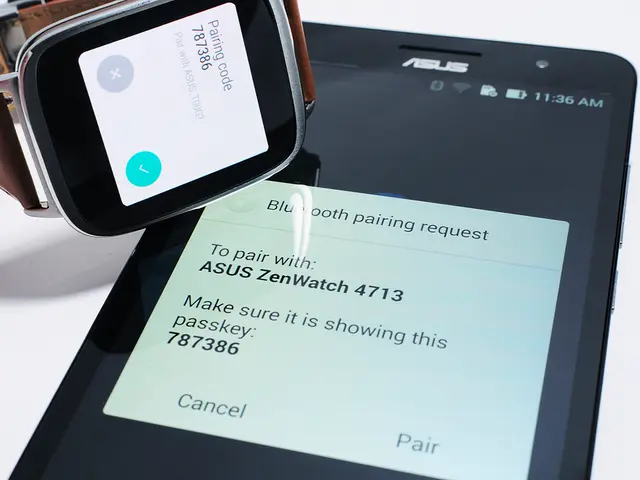Meta unveils its augmented reality eyewear
Meta's AR Glasses: A Step Forward in AI Interaction, but Challenges Remain
Meta, formerly known as Facebook, is leading the way in developing smart glasses for everyday AI interaction. The company's Meta Ray-Ban smart glasses and the newer Oakley Meta Vanguard glasses line are at the forefront of this innovation.
The AR Glasses feature a single lens that can display text messages, photos, and videos, making them an ideal tool for seamless integration of AI into daily life. The display integrated into the right lens boasts a resolution of 600 by 600 pixels.
During the recent Meta Connect presentation, Mark Zuckerberg demonstrated the AR Glasses by writing letters on a surface with his fingers, which were converted into text messages using a wristband. However, the live demonstration was not without its issues. A video call on the display glasses was difficult for Zuckerberg, and a cooking demonstration using AI guidance went awry, with the software skipping the first step and refusing to reveal it.
Despite these hiccups, Meta remains optimistic about the AR Glasses. The company claims a battery life of up to six hours for the glasses, and they are scheduled to be available in the US from late September, starting at $799.
Other tech giants are also exploring the realm of AR glasses. Apple, for instance, has showcased prototypes but has only released a VR headset so far. Google demonstrated prototypes at its developer conference in May, but no release date has been announced.
However, it seems that the performance of Meta's AR Glasses in daily life remains uncertain. The AI software's inability to reveal the first step in a cooking demonstration or to handle a video call smoothly raises questions about its reliability.
Despite these concerns, Meta is pressing ahead with its plans. The company has been considering glasses with cameras, microphones, speakers, and now displays as the best way to interact with AI in daily life for years.
In conclusion, Meta's AR Glasses represent an exciting step forward in AI interaction, but there are still challenges to be addressed. As the technology continues to evolve, we can expect to see further improvements and refinements in the coming months.
Read also:
- Significant Expansion Forecasted for Gesture-Controlled Technology Wearables Sector at a Rate of 14.4%
- Meta's AI-equipped smart spectacles, introduced by Mark Zuckerberg
- Samsung may debut display-less smart glasses in the market.
- Meta's Chief Technology Officer hints at significant developments in the wearables sector for the remainder of the year, yet falls short of guaranteeing any Virtual Reality headset launches.








